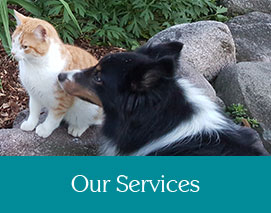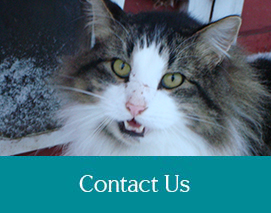Library
-
Pequenos are the smallest of the three Portuguese Podengos. They love to run and play and appear to enjoy being silly.
-
Portuguese Water Dogs are intelligent and used to deciding for themselves if something is not right. The positive aspect of this behavior is that they are wonderful companions, take good care of the children in their families, and feel at home in the city, the country, or at the beach.
-
Guarding desired items can be a normal behavior in dogs, but when it escalates, the safety of both people and animals is compromised. Exercises to prevent and reverse guarding behavior can be beneficial to any dog. Professional guidance is needed for any dog who repeatedly conflicts with people or pets because of guarding behavior.
-
When families shelter together for extended periods, as occurred during the COVID-19 pandemic, pets enjoy nearly constant companionship. As people resume an active lifestyle, pets are suddenly faced with being alone. They may experience distress related to this loss of companionship. Treatment is discussed, such as independence training and an incremental program of safe departures. If your pet shows continued signs of distress related to being alone, it is important to seek professional help to prevent escalation.
-
Understanding learning principles and canine communication can set you and your dog up for success. Positive reinforcement can be used to create desired behavioral responses. Behavior modification techniques can be used to treat behavioral concerns such as fear.
-
The pro-opiomelanocortin (POMC) gene, if mutated, can contribute to increased body fat and body weight and increased food motivation in affected dogs. At this time, this gene mutation has only been found in the Labrador Retriever and Flat-coated Retriever and affects the majority of those working as service dogs. This handout explains how the POMC gene mutation was discovered, how it impacts affected dogs, and how you can support your dog if affected.
-
Many dogs love to get out to socialize and exercise with their canine friends and dog parks are their go-to spots for getting together. Proper etiquette, from both you and your pup, will allow everyone to enjoy the park safely and courteously.
-
No hyperactive ankle-biter, the Pug has a stable and noble way, befitting a much larger dog - and a giant personality to match.
-
A barking mop on springs, the Puli is a perky and personable dog that gets lots of second looks for his Rastafarian locks.
-
A successful life with a family dog starts with great training for your puppy. Planning to set puppies up for success, learning how to use management, positive reinforcement, luring, capturing, and shaping will help owners train their puppies successfully. Positive puppy training and socialization classes are also beneficial for healthy puppies over eight weeks of age.



